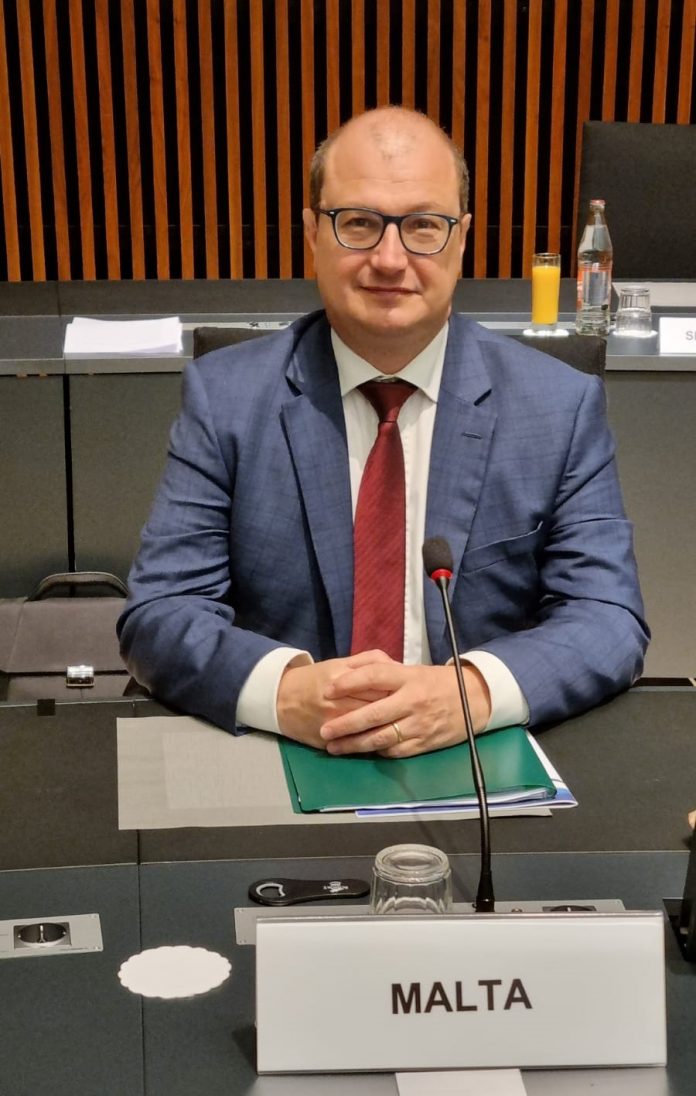17 investment projects and 30 reforms included in Malta’s plan
Malta’s Recovery and Resilience Plan has been approved by the EU Council of Ministers for Economic and Financial Affairs, known as ECOFIN. This step will be followed by the signing of the agreement that will allow Malta to start receiving grants in relation to the implementation ofthe respective investments and reforms.
Parliamentary Secretary for European Funds Stefan Zrinzo Azzopardi, who participated in the ECOFIN Council meeting, thanked the European Commission for its invaluable assistance in drawing up Malta’s Recoovery and Resilience Plan.
He stated that through this plan, which incorporates a total expenditure of €345 million, €316 million of which are Malta’s grant component from the NextGeneration EU, Malta will implement a vast range of reforms and investments. The planned reforms seek to address various challenges, including those identified in the Country Specific Recommendations. The measures contained in the plan complement other national investment plans and EU cohesion funding, aimed at strengthening the growth potential and social institutional resilience while reaching Malta’s environmental targets.
The first two components of the plan seek to address climate change through enhanced energy efficiency, clean energy, circular economy and more sustainable transport. Parliamentary Secretary Stefan Zrinzo Azzopardi said that reforms include the development of a long-term strategy to renovate Malta’s building stock by 2050 and reorganising the waste collection system to make it more efficient. The plan also aims at expanding the use of public transport and promote remote working which would indirectly contribute to cleaner air as a result of fewer vehicles commuting to the workplace.
These reforms will be complemented by investments to decarbonise private and public buildings, incentives for the purchase of electric vehicles, the purchase of electric buses for public transport and the construction of a new ferry landing facility in St Paul’s Bay to provide alternative and more sustainable means of transport across our islands. Parliamentary Secretary Zrinzo Azzopardi said that the climate-related expenditures in the first two components of the plan account for 54% of the plan’s total allocation.
He added that the RRP also focuses heavily on digitalisation with 26% of the total allocation dedicated to this sector. Further digitalisation of the public administration, including health and justice will be carried out. Malta’s plan seeks to improve the resilience of the health sector through better workforce management, disease prevention and the establishment of a blood, tissue and cell centre which will serve to reduce Malta’s dependence on other countries for specialised therapies. The plan will also support the digitalisation of Small and Medium Size Enterprises through grant schemes.
Parliamentary Secretary Zrinzo Azzopardi said that Malta’s plan also seeks to tackle the challenge of reducing the number of early school leavers and upskilling and reskilling adults through measures that include expanded guidance and further opportunities for training. A new Centre for Vocational Educational will be established together with a new campus for the Institute of Tourism Studies. Another component also seeks to target Malta’s challenges in the area of research and innovation primarily through better interaction between businesses and higher education institutions.
The Parliamentary Secretary further stated that Malta’s Plan for Recovery and Resilience also includes measures to strengthen the Malta’s institutional framework . This reform programme is the most ambitious and builds on a strong reform momentum alredy registered in this area. Measures cover the independence of the judiciary, the fight against corruption, anti-money laundering and aggressive tax planning.
Apart from the reforms already implemented in this sector, other reforms are either in the pipeline or are well underway, including improving the independence of specialised tribunals and the continued reinforcement of anti-corruption bodies. In the field of anti-money laundering, Malta’s plan also includes a firm commitment to implement all necessary measures to address any weaknesses identified by the FATF.










